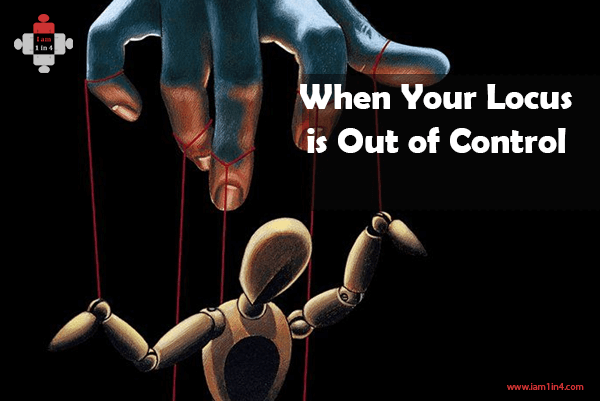

People who have internal locus of control believe that the outcomes of their actions are results of their own abilities. Internals tend to attribute outcomes of events to their own control. Rotter (1975) cautioned that internality and externality represent two ends of a continuum, not an either/or typology. Rotter (1975, 1989) has discussed problems and misconceptions in others' use of the internal-versus-external construct.

Bernard Weiner argued that rather than ability-versus-luck, locus may relate to whether attributions are made to stable or unstable causes. This was interpreted that people could be divided into those who attribute to ability (an internal cause) versus those who attribute to luck (an external cause).

James studied two types of "expectancy shifts": Early work on the topic of expectations about control of reinforcement had been performed in the 1950s by James and Phares (prepared for unpublished doctoral dissertations supervised by Rotter at Ohio State University). Attempts have been made to trace the genesis of the concept to the work of Alfred Adler, but its immediate background lies in the work of Rotter and his students. Lefcourt defined the perceived locus of control: ".a generalised expectancy for internal as opposed to external control of reinforcements". In 1966 he published an article in Psychological Monographs which summarized over a decade of research (by Rotter and his students), much of it previously unpublished. It is an example of a problem-solving generalized expectancy, a broad strategy for addressing a wide range of situations. Rotter's (1954) social learning theory of personality. Locus of control as a theoretical construct derives from Julian B. (2002) argued that locus of control, neuroticism, self-efficacy, and self-esteem factors may have a common core. The concept of core self-evaluations was first examined by Judge, Locke, and Durham (1997), and since has proven to have the ability to predict several work outcomes, specifically, job satisfaction and job performance. Locus of control is one of the four dimensions of core self-evaluations – one's fundamental appraisal of oneself – along with neuroticism, self-efficacy, and self-esteem. Careful distinctions should also be made between locus of control (a personality variable linked with generalized expectancies about the future) and attributional style (a concept concerning explanations for past outcomes), or between locus of control and concepts such as self-efficacy. Debate continues whether domain-specific or more global measures of locus of control will prove to be more useful in practical application. The construct is applicable to such fields as educational psychology, health psychology, industrial and organizational psychology, and clinical psychology. Locus of control has generated much research in a variety of areas in psychology. People with a strong external locus of control tend to praise or blame external factors such as the teacher or the difficulty of the exam. Individuals with a strong internal locus of control believe events in their life are primarily a result of their own actions: for example, when receiving exam results, people with an internal locus of control tend to praise or blame themselves and their abilities. A person's " locus" (plural "loci", Latin for "place" or "location") is conceptualized as internal (a belief that one can control one's own life) or external (a belief that life is controlled by outside factors which the person cannot influence, or that chance or fate controls their lives). Rotter in 1954, and has since become an aspect of personality psychology. Locus of control is the degree to which people believe that they, as opposed to external forces (beyond their influence), have control over the outcome of events in their lives. They also struggle more with procrastination and difficult tasks. A person with an external locus of control attributes academic success or failure to luck or chance, a higher power or the influence of another person, rather than their own actions.


 0 kommentar(er)
0 kommentar(er)
